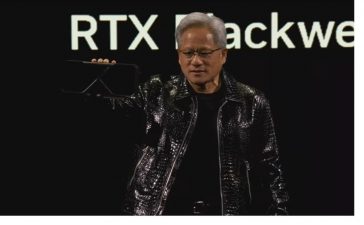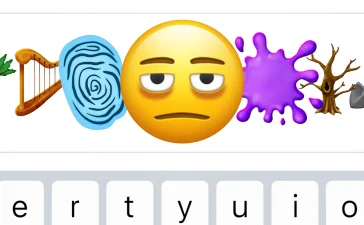Yu-Gi-Oh! has appeared in video games since 1998, and although not all of them play by the same rules as the TCG, and some are digital-only releases, the rest came with promotional cards only available by purchasing new copies of the games. Traditionally, most Yu-Gi-Oh! games came with at least three exclusive cards.
Because players could only obtain these cards by purchasing specific Yu-Gi-Oh! games, those who could afford them gained a major advantage as long as they were still allowed to use those cards against other players. Over the years, this tradition became less prominent, especially with how much faster Konami rereleases cards, but nonetheless it remains an essential aspect of Yu-Gi-Oh! history.
The first Yu-Gi-Oh! game ever released was the Japan-exclusive Yu-Gi-Oh! Capsule Monsters Breed & Battle for the original PlayStation in 1998. As such, it was also the first Yu-Gi-Oh! game to come with promotional cards despite revolving around Capsule Monsters Chess instead of Duel Monsters.
Although Breed & Battle doesn’t revolve around Duel Monsters, there are a few familiar faces both in the game and as promotional cards, although they have different designs to those in the modern game. Blue-Eyes White Dragon, Mystical Elf and Zorc are three Duel Monsters in particular that appear in-game and feature on promotional cards. The other seven, Batty, Demonis, Dinosaur Wing, Eyeronoid, Red Scorpion, Runner Lizard and Sonic Eye, are either game-exclusive or also appeared in the Capsule Monsters Chess chapters of the original Yu-Gi-Oh! manga.
The first two Yu-Gi-Oh! video games to release in North America launched the same week, only a day away from each other. Yu-Gi-Oh! Dark Duel Stories released for the Game Boy Color on Mar. 19, 2002, and Yu-Gi-Oh! Forbidden Memories released for the original PlayStation the following day. Despite both games not following the TCG ruleset, they both came with noteworthy promotional cards — but not the same ones.
Dark Duel Stories came with five promotional cards; Blue-Eyes White Dragon, Dark Magician, Exodia the Forbidden One, Seiyaryu, Acid Trap Hole, and Salamandra. Only Seiyaryu, Acid Trap Hole, and Salamandra remained exclusive for several years, while the other three could be obtained through various Yu-Gi-Oh! booster packs and starter decks, although they weren’t Prismatic Secret Rare like the promotional versions.
Comparatively, Forbidden Memories only came with three promotional cards rather than five. These cards were Red-Eyes Black Metal Dragon, Harpie’s Pet Dragon, and Metalmorph, and it was the only way to obtain new copies of these iconic cards until 2007, with Harpie’s Pet Dragon not seeing a rerelease until 2009.
Some Game-Exclusive Yu-Gi-Oh! Cards Were the Most Powerful Around
While games like Dark Duel Stories and Forbidden Memories had exclusive promotional cards, including some powerful Normal Monsters, some later Yu-Gi-Oh! games included powerful exclusive promotional cards. Harpie’s Feather Duster, a common deck staple today, was one of the three promotional cards included with 2003’s Yu-Gi-Oh! Worldwide Edition: Stairway to the Destined Duel Game Boy Advance game. Worldwide Edition was the only way to obtain this back row clearing card until 2006, although it was banned from 2004, when the Forbidden list was first created, until 2020.
Another promotional card included with Worldwide Edition, Valkyrion the Magna Warrior, required purchasing an additional video game if players wanted to summon it. Valkyrion cannot be Normal Summoned or Set, and requires Alpha the Magnet Warrior, Beta the Magnet Warrior, and Gamma the Magnet Warrior as tributes to be Special Summoned. The three Magnet Warriors were included as promotional cards with the Yu-Gi-Oh! The Duelist of the Roses PlayStation 2 game, which came out in North America only a few months before Worldwide Edition in 2004.
One of the most notable video game promotional cards is The Winged Dragon of Ra, which came with 2004’s Xbox-exclusive Yu-Gi-Oh! The Dawn of Destiny. One of Yu-Gi-Oh!‘s Egyptian God cards, The Dawn of Destiny, was the only way to obtain an authentic copy of this iconic monster until 2011, even if it was illegal outside of playground duels.
A Yu-Gi-Oh! Tradition That May Not Return
The last Yu-Gi-Oh! game to include promotional cards, at least outside of Japan, was 2019’s Legacy of the Duelist: Link Evolution, which only has a physical edition on Nintendo Switch. Although there have been several Yu-Gi-Oh! games since then, they have been exclusively digital releases, so there hasn’t yet been another chance for newer Yu-Gi-Oh! games to include exclusive promotional cards.
Promotional video game Yu-Gi-Oh! cards may be a relic of the past, but due to how many there are and how much variety they’ve had between games, they’re still part of Yu-Gi-Oh!‘s history that deserves highlighting. Yu-Gi-Oh!‘s 25th anniversary may not be announcing a new video game with physical copies, but Konami could always acknowledge the history of these once-exclusive cards with a new collection.
















